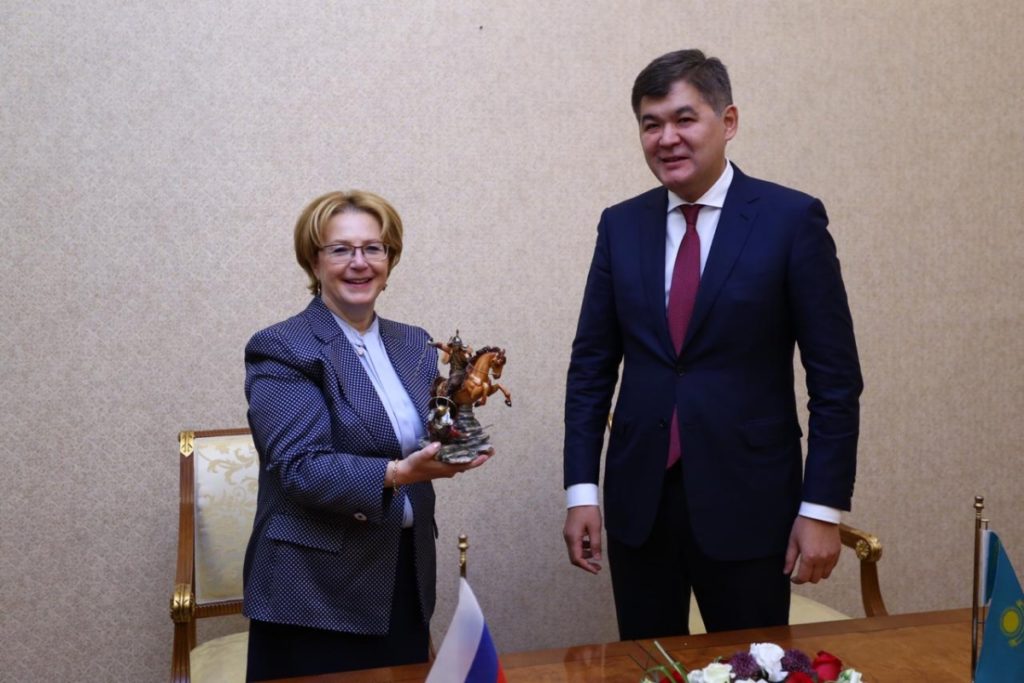ASTANA – The Kazakh and Russian Ministries of Healthcare agreed to develop joint systems to provide medical aid using telemedicine during the Global Conference on Primary Health Care held Oct. 25-26 in the capital, reported the Kazakh ministry press service.

Russian Minister of Health Care Veronika Skvortsova and Kazakh Minister of Health Care Yelzhan Birtanov.
The two countries will create a road map for cooperation. They approved collaboration to digitise health care and telemedicine and develop common standards for data exchange ensuring system interoperability to provide medical assistance using telemedicine technologies.
The agreement will improve peoples’ quality of life, noted Kazakh Minister of Healthcare Yelzhan Birtanov.
“The development of telemedicine is one of the main directions for the ministry. Recently, the head of state delivered a state-of-the-nation address focused on social issues including income of the population, social status, affordable quality education and healthcare. He emphasised the necessity to develop primary healthcare (PHC) and to increase salaries for health workers. There is a need to move to digital service and paperless medicine. We are currently working on this,” he said.
He noted Russian companies provide information systems in the medical services’ domestic market.
“We now want to expand traditional telemedicine outside hospitals with active public education, using technology to connect health workers and patients. We are confident that this memorandum will have a positive impetus. We also intend to cooperate in terms of training and exchange of experience. We want to cooperate in drug provision, to develop this area and to build a network of distributors. We are open for discussions,” he added.
Russian Minister of Healthcare Veronika Skvortsova confirmed their readiness to support all projects.
“We are convinced that digitisation is the basis for our further relations including infrastructure, personnel training and drug provision,” she said.
Earlier in the conference, she noted Russia’s medical organisations will be connected to the unified state medical system by the end of 2020.
“It will be integrated with central and regional medical information systems. The system will be linked to the procurement and drug tracking system. We will create 85 regional segments with a regional server. We will connect all medical organisations to the regional server. In total, 75,000 objects will be connected to the healthcare system,” she added.
Birtanov met with Iranian Health Minister Seyd Hassan Hashimi and participated in a Joint United Nations Programme on HIV/AIDS (UNAIDS) meeting.
The conference agenda included economic development and promoting equity through PHC. Discussions focused on building more resilient health systems to ensure emergency health response, a cross-sectorial approach to PHC and public health management, introducing PHC at the community level and access to vaccines, drugs and medical products.
